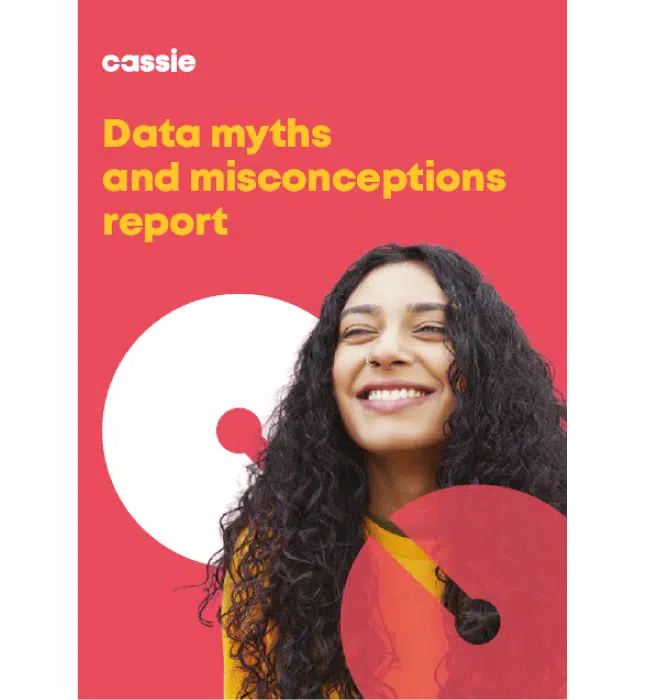Retail personalization redefined: 3 ways to elevate customer connections
Posted: January 6, 2024
For marketing leaders, personalized marketing campaigns remain a priority. Personalization enables businesses to engage with customers in ways that make the consumer feel more valued by the business, driving brand loyalty and customer satisfaction.
Developing brand loyalty is a vital tactic for marketers to increase revenue in a cost-effective manner. Acquiring a new customer can cost 5 times more than retaining an existing customer so brands must develop strong relationships with customers by respecting their data and making them feel more valued.
This is particularly true within the retail sector, where consumers are much more accustomed to personal sales and marketing tactics. But as technology evolves, so too does the potential for personalization.
Marketers are now at a turning point, where introducing new innovations can transform the customer experience, potentially providing the much-needed competitive advantage required to grow their market share in such a saturated industry.
However, despite personalization having its many advantages, it can create challenges for organizations to personalize campaigns and experiences whilst remaining compliant with relevant data privacy laws. It’s all too easy to implement these exciting new features without taking a moment to consider the true implications of the data you’re collecting and what you could then do with it.
In this blog, we explore some of the different ways that your organization can make the most out of your customers’ preferences to deliver personalized marketing, as well as the key privacy considerations…
3 ways to elevate customer connections through personalization
Elevating customer connections through sophisticated personalization strategies requires a deep understanding of customer behaviors, preferences, and the ability to adapt to the evolving landscape of data privacy regulations.
Hyper-personalized shopping journeys:
- Implement AI-powered systems that analyze customer behavior, past purchases, and preferences to create hyper-personalized shopping journeys.
- Use machine learning algorithms to predict future buying behavior and adjust the online shopping experience in real-time.
Integrate Augmented Reality (AR) for virtual try-ons:
- Implement AR features that allow customers to virtually try on clothing, accessories, or even home furnishings.
- Utilize data from virtual try-ons to recommend complementary items based on the customer’s style and preferences.
Subscription-based personalized services:
- Introduce subscription services that provide personalized product recommendations and automatic deliveries based on individual preferences.
- Use AI to continuously refine subscription offerings by analyzing customer feedback and adjusting product assortments.
The Privacy vs Personalization paradox
Whilst many marketeers understand the importance of personalization, that doesn’t necessarily mean that they’re being compliant with it. Data privacy is an ever-changing landscape with more legislations coming into place on a consistent basis.
2023 saw 5 US state privacy laws introduced with a further 7 being passed for law, which shows how prepared your retail business must be to achieve compliance.
Customer expectations continue to grow when it comes to personalization – we expect seamless, relevant content and advertisements, with anything irrelevant often leading to irritation or suspicion as to why we’ve been shown certain things.
As a result, personalization is a common marketing tactic, but it’s not always being done with care. When brands get it wrong, for example Aviva sending out an email incorrectly addressing everyone as ‘Michael’, you risk reputational damage.
If you can’t get a customer’s name right, why should they trust you with other much more sensitive data, like biometrics and PII?
Which brings the challenge to the ‘Privacy vs. Personalization paradox’: customers want more relevant experiences, but not at the expense of their private data being exposed.
Brands need to go above and beyond to collect first-party data compliantly, with full transparency to explain to customers exactly why they’re collecting it.
Businesses then need to actively manage and honor their consent and preferences across every touchpoint, to ensure all further communications and activities meet their expectations.
To do this at scale, especially when managing such high-volume data, companies need to invest in technology platforms that enable both the collection and enforcement of consent data.
Cassie’s consent and preference management platform allows your e-commerce business to achieve compliance whilst building customer trust and increasing revenue.

Download our ‘data myths and misconceptions’ research report
Read our research report to understand why U.S. consumers have concerns about the security of their personal data, as we cover:
- Popular data protection measures and whether or not consumers find them to be effective
- The levels of awareness regarding the amount of information that companies can collect about consumers
- If consumers are keeping up to date with data privacy laws
- How organizations can build customer trust by respecting data and being transparent with their consumers
When is retail personalization valuable?
Managing preferences and enabling customers to extend their granular preferences provides an opportunity for retailers to create a personalized customer experience, better understanding their buyer personas which can be beneficial for future marketing tactics and campaigns.
Email campaigns
Obtaining additional consumer data about preferences can be vital to a successful email marketing campaign. If marketeers can possess the ability to further understand their customers, including their email preferences, then they can increase customer satisfaction.
For example, if a customer only wishes to receive emails when a specific item in their wish list comes back in stock, this will reduce frustration as they’ll be less likely to be agitated by a large volume of emails unrelated to their interests. It’ll also likely increase engagement and conversion, as you’re much more likely to send them the right content at the right time, according to their own preferences.
Another example of how personalization can benefit your email campaigns is by allowing you to target individuals who have left their purchasing journey during the checkout stage, before completing the purchase. Offering incentives can encourage customers to complete a purchase whilst marketers identify and eliminate potential pain points.
Tailored product recommendations
Browsing websites can often cause frustration for consumers because it can sometimes be challenging for them to pick up where they left off on a browser. If your brand can identify which items are being commonly looked at by individual consumers, then items within this category can be suggested to consumers and increase conversion rates.
Personalized marketing allows retailers to adapt to consumer trends by aligning their campaigns with what customers want, instead of trying to manually follow trends and potentially fall behind.
You can tailor product recommendations on a number of platforms and touchpoints, including:
- Websites – Landing pages showcasing featured products that are similar align with a consumer’s interests.
- Emails – Segmented campaigns, exclusive offers to consumers signed up to newsletters, greeting customers by name.
- Apps – Tailor product recommendations onto a homepage, “welcome back… ” messages, exclusive offers and other prompts e.g. “we notice you didn’t buy…”
- SMS (Text) – Exclusive offers to loyal customers, reminders of items back in stock
How can Cassie help with retail personalization?
Consent management is paramount in the implementation of advanced personalization strategies for enterprise-level retail brands.
When it comes to building deeper customer connections, where data plays a pivotal role, obtaining explicit and informed consent is crucial.
A robust Consent Management Platform (CMP) ensures compliance with stringent data protection regulations such as GDPR and CCPA, safeguarding the privacy rights of customers.
By transparently communicating the purpose and scope of data collection, retail brands not only adhere to legal requirements but also build trust with their customers.
This trust is foundational for the success of hyper-personalized experiences, as customers are more likely to engage and share valuable information when they feel in control of their data.
A CMP facilitates the granular control of consent preferences, allowing users to dictate the types of data they are comfortable sharing, contributing to a personalized shopping journey that respects individual privacy.
With data privacy only continuing to grow as a priority for consumers, a well-implemented consent management strategy not only ensures legal compliance but also establishes the ethical foundation necessary for fostering long-term customer loyalty and connection.
Advanced personalization features within the Cassie CMP:
Progressive Profiling
Cassie’s Progressive Profiling module allows marketers to collect valuable first-party data insights to collect additional information about consumers, to then deliver personalized content based on customer preferences.
Improve customer connections and touchpoints by serving non-intrusive pop-ups to your customers (e.g., questions/surveys/polls) throughout the customer journey. However, it is important to not create frustration to the customer by overwhelming them with content and preference pop-ups so brands should be careful to only obtain preferences that can directly impact marketing campaigns.
Marketers can use Cassie’s preference dashboard to view and identify trends to then make data-driven decisions to help boost engagement and increase revenue.
Identity Service
Compliantly retain the identity and preferences of your returning visitors with Cassie’s Identity Service module. The feature allows you to store preferences and cookies of returning visitors even if their browser attempts to remove cookies.
Each visitor is assigned a unique identifier and each time the user visits a website, Cassie’s first-party cookie solution recognizes that user and regenerates the cookies from previous sessions to help create a personalized customer experience based on their selected cookies and preferences.
The identity service module supports retail personalization because it reduces consent fatigue for returning visitors, meaning each user journey on your website differentiates from another.

